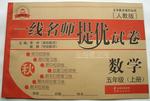题目内容
【题目】阅读理解
When my students ask me why I live in a tiny house, they ask it in light of all the “sacrifices(牺牲)”I an making. They know that I have moved from a large apartment in the city to a small custom-built home on wheels in the backyard woods. They know I forego running water, Internet connection, sewage(下水道), and reliable phone reception.
However, it was possible for me to be truly happy while living with very few material things. My body responded well, in health, fitness and mood, to a schedule more consistent(一致的)with the natural day and night cycle. Observing the daily sunset, hosting friends for days at a time, reading, writing letters to my families and friends and exploring natural wonders in my spare time all were free and invaluable experiences.
What was necessary to my survival proved to be a rather short list-healthy food, clean and drinkable water, heat source, weather-protecting shelter, weather-suitable clothing, equally important friends and mental and physical stimulations(刺激).
When I returned to life in the US, I couldn't help but sense a deep and uneasy belief that life suddenly changed. I felt disconnected with many things- the earth, others, my food source, my waste disposal, the natural cycle of my body and the productive interests. These are the things I once cared for but now find myself too busy to enjoy. How was it that I was earning literally 40 times my Peace Corps salary and was less healthy, satisfied and intentional in my daily schedule? I found myself asking-what is it to be rich anyway? Therefore, last August I let go of most of my possessions and moved into a tiny house on wheels because I wanted to see if I could live a more enjoyable lifestyle. So far so good. No inconvenience has made up for the many positive benefits that continue to come from this change in lifestyle. I believe that I have made the right decision.
(1)What does the underlined word “forego” in the first paragraph probably mean?
A.Give away.
B.Take along.
C.Care for.
D.Go after.
(2)What interested the author most when living in the tiny house?
A.The natural living schedule.
B.Busy and invaluable experiences.
C.The happiness of the simple life.
D.The very few material possessions.
(3)What did the author feel when he returned to the US?
A.He was behind the times.
B.He wouldn't enjoy the modern life.
C.He was rich enough to enjoy the city life.
D.He was disconnected with the outside world.
【答案】
(1)A
(2)C
(3)B
【解析】作者不愿生活在大城市,宁愿贴近大自然的生活,简单,健康,快乐,更适合她自己,正是她所要的生活。
(1)A词义猜测题。根据前文的描述,作者以前生活在城市的大房子里,现在生活在树林里一个移动的自主建造的小房子里,没有自来水,因特网,手机登这些现代化的东西,故此处为放弃的意思,因此答案为A。
(2)C细节理解题。根据文章第二段it was possible for me to be truly happy while living with very few material things.可知最吸引作者的还是她的开心,所以答案是C。
(3)B 推理判断题。根据最后一段When I returned to life in the US, I couldn't help but sense a deep and uneasy belief that life suddenly changed. I felt disconnected with many things- the earth, others, my food source, my waste disposal, the natural cycle of my body and the productive interests. These are the things I once cared for but now find myself too busy to enjoy.可知她无法离开大自然的生活,享受不了现代化的生活模式,所以答案是B。

 一线名师提优试卷系列答案
一线名师提优试卷系列答案【题目】选词填空
Account for, depend on, team up, settle down, take on, confirm, have a gift for, get away with |
(1)As a teacher, she can't have any students cheating in the exam.
(2)China has a population of 1.4 billion, with the aged 15.5%.
(3)He wore a puzzled look on his face, that he didn't quite follow what she said.
(4)To form a music band, they advertised for people singing and performing.
(5)His mind wandered from time to time in class. He should to his lessons and taking notes.
(6)Not knowing about each other, they had a hard time in to carry out the research at the beginning.
(7)You are promised to get extra pay for extra work, your work done.
(8)He the responsibility for collecting evidence for the trial without giving it a second thought.